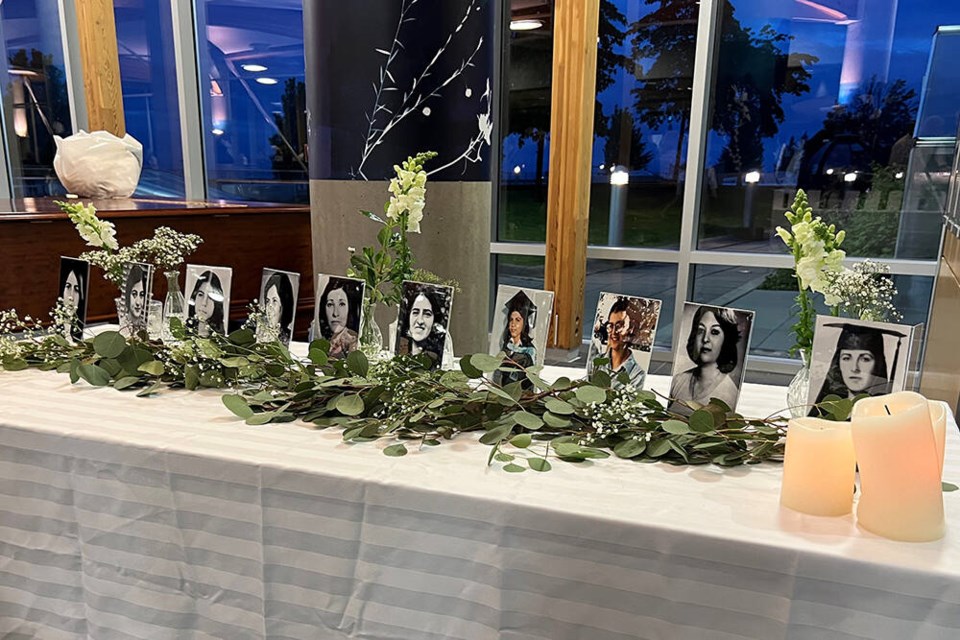A community of North Vancouver and West Vancouver residents of Iranian descent gathered at Mulgrave School on Saturday, May 25, to commemorate the 40th anniversary of the execution of 10 Baha’i women, at an event titled Our Story is One.
On June 18, 1983, the Islamic Republic of Iran hanged 10 women of the Baha’i faith in a single night in Chogan Square in the city of Shiraz.
“The youngest of the women was 17; most others were in their 20s, and the eldest was 57. The 10 women were arrested in October and November of 1982 and held in the Islamic Revolutionary Guard Corps detention centre and then transferred to Adel Abad Prison in the southern Iranian city of Shiraz,” said Ashley Roberts, who served as the event’s MC.
“They suffered harsh interrogations and torture by IRGC in an attempt to coerce them to recant their faith,” she said. “They were denied the right to a lawyer and a trial in a public court and ultimately sentenced by the Sharia judge of Shiraz to execution by hanging on charges of espionage and teaching moral education classes to male and female children. Each of these women was given four opportunities to renounce their faith to avoid execution. None agreed.”
The event organizers noted, “As the echoes of this injustice persist, we acknowledge the enduring resilience and sacrifices of women in Iran and across the globe in their struggle for gender equality, justice, and freedom.”
The event opened with an art exhibit focusing on the Iranian women’s rights movement and a musical performance by Canadian-Australian performer Shadi Touloui-Wallace.
Attendees then listened to recollections from Nahid Mazloum, whose sister, Roya Eshraghi, and mother, Ezzat Janami Eshraghi, were among those executed four decades ago.
“The loss of loved ones is tough, but when this loss happens unjustly, it becomes a different story,” she said. “It’s like reading a book and having it end abruptly in the middle of the plot. It leaves you confused, wondering how the story could ever be complete. For the past 40 years, I’ve been playing and replaying the memories from the first 20 years of my life, imagining how different things could have been if they were still with us.”
The event concluded with a keynote address by Shahrzad Sabet, co-director of the Center on Modernity in Transition and a fellow at New York University’s Institute for Public Knowledge. She delved into why the deeply felt recognition of human oneness is integral to achieving justice.
“A society in which oppression and injustice exist is a society in which every member, whatever their position, suffers,” she said. “When women are oppressed, an entire society is deprived of the full potential of half its members.”
The Iranian diaspora has long yearned for a better, more equal Iran, she said.
“For those of us whose own stories are somehow intertwined with Iranian society, the vision of a more just and prosperous Iran has long been a yearning of our hearts," said Sabet. “I hope what we take from the conviction of these 10 women is that the Iran we yearn for – indeed, the world we yearn for – will not be realized through conflict and division, but rather, through the profound and deeply felt recognition that our story as human beings is one.”
The Baha’i faith is a religion founded in the 19th century in Iran. Since the Iranian Revolution of 1979, many Baha’i men and women have been severely persecuted or killed. Those serving in prominent social positions in the country were dismissed from their jobs, arrested and imprisoned, tortured, or executed. Those left to live in Iran have been barred from universities, public employment and virtually all aspects of social life.




